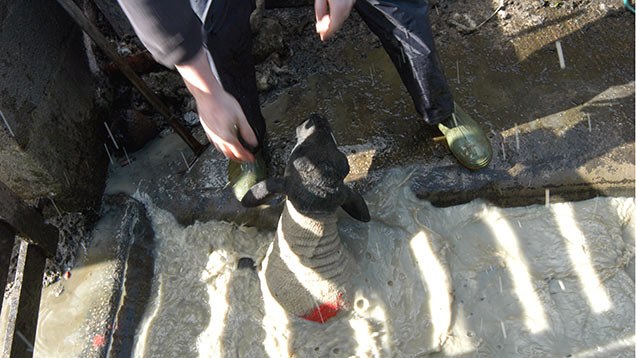France links organophosphate pesticide exposure to cancer
 © Photofusion/REX
© Photofusion/REX
France has listed non-Hodgkin lymphoma (NHL) as an occupational disease relating to work in agriculture through exposure to certain pesticides, including organophosphate sheep dip chemicals.
French agriculture minister Stéphane Le Foll has amended the schedule of occupational diseases in agriculture to include NHL – a cancer of the lymphatic system – in a decree announced on 5 June.
The amendment of France’s schedule of occupational diseases in agriculture to enable the management of NHL relates primarily to farmers who are exposed to the following pesticides: organochlorines, organophosphates, carbaryl, toxaphene or atrazine.
See also: Minister to meet OP sheep dip campaigners
Mr Le Foll said the French government acted to change the schedule following the publication by the National Institute of Health and Medical Research (Inserm) of results of a collective expertise on health risks associated with exposures to pesticides.
“The protection of agricultural workers, particularly employees who may be exposed to dangerous pesticides, is a major concern of the minister for agriculture, which goes along with the limitation of the use of such products by amateur users.”
French Ministry of Agriculture
“The protection of agricultural workers, particularly employees who may be exposed to dangerous pesticides, is a major concern of the minister for agriculture, which goes along with the limitation of the use of such products by amateur users,” said the French Ministry of Agriculture, in a statement.
Non-Hodgkin lymphoma, which is sometimes referred to as lymphoma, is a type of blood cancer that occurs in the lymphatic system.
Studies in France have suggested that exposure to certain pesticides may be linked to an increased risk factor of NHLs.
Meanwhile, in a separate development, French environment and energy minister Segolene Royal has asked garden shops to stop selling products containing the weedkiller glyphosate.
In March, a report by the International Agency for Research on Cancer (IARC), part of the World Health Organisation (WHO), said glyphosate, the key ingredient in Monsanto’s Roundup Ready, was “probably carcinogenic to humans”.
“France must be on the offensive with regards to the banning of pesticides,” Ms Royal said on French television.
Monsanto has rigorously contested claims in the IARC report.
The company insisted “all labeled uses of glyphosate are safe for human health and supported by one of the most extensive worldwide human health databases ever complied on an agricultural product”.
